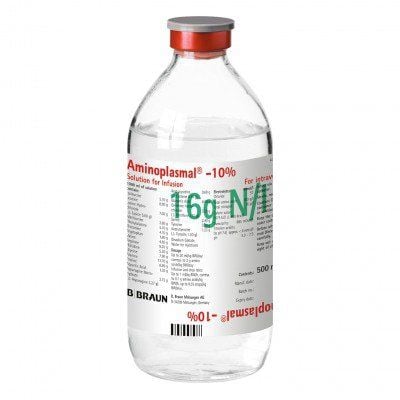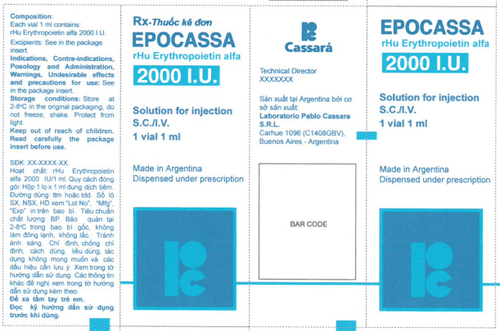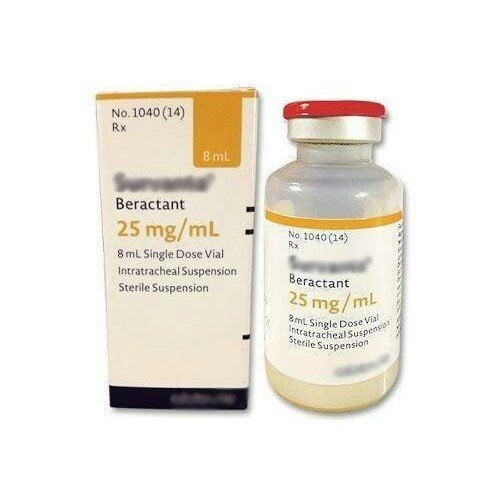This is an automatically translated article.
The article was professionally consulted with Specialist Doctor I Nguyen Huu Nam - Pediatrician - Neonatologist - Department of Pediatrics - Neonatology - Vinmec Nha Trang International General Hospital.The risk of a premature baby is greatly increased if the baby's gestational age is too small when the baby is born. At the same time, the risk of premature birth also depends on factors of child care in the first months of life. Accordingly, parents need to prepare knowledge about what preterm babies need to check to prepare their babies.
1. What health problems can be encountered in premature babies?
The fetus always needs a full month in the womb to develop. If born too early, premature babies may not develop fully, resulting in serious health problems. Accordingly, premature babies often have the following problems with the heart, brain, lungs or liver:Sleep apnea bronchopulmonary dysplasia Intraventricular hemorrhage Necrotizing enterocolitis Sepsis abnormal blood flow in the heart Retinopathy of prematurity In addition, premature babies are also at risk for serious health problems later in life, including:
Cerebral palsy hearing and vision impairment Cognitive impairment Poor growth
2. What do premature babies need to check?
Confirmation of gestational age in neonates is based on physical and neurological features. Accordingly, the major parts of anatomy for the characteristic physical signs are ear cartilage, skin folds, breast tissue, and genitalia. Also, what screenings are required for premature infants and how physical assessment is achieved at birth should be performed as soon as the infant's condition is stabilized and before the expected weight loss on the first day occurs. first.Neurological examination criteria in premature infants include muscle tone of the trunk and extremities as well as joint mobility. Re-evaluation of neurological criteria 18-24 h postpartum is necessary to allow prognosis for possible sequelae.

Trẻ sinh non cần khám những gì sẽ được bác sĩ chuyên khoa trực tiếp thăm khám
3. Tests needed to assess the risk of premature birth
Initial tests to determine the risk of premature birth include:3.1. Blood tests Blood tests help measure blood sugar levels regularly. This is important because hypoglycemia and hyperglycemia are very common in premature babies.
A complete blood cell count may indicate anemia or polycythemia that is not clinically apparent. High or low white blood cell counts and multiple types of immature neutrophils may also be found. However, an abnormal white blood cell count may suggest neonatal infection.
Blood tests and antibody tests (Coombs test) are done to detect blood type incompatibility between mother and infant and identify antibodies against fetal red blood cells. Such incompatibility increases the risk of neonatal jaundice and nuclear jaundice.
3.2. Quantification of Serum Electrolytes At birth, most serum electrolyte levels reflect the mother's electrolyte levels. For example, if the mother is given magnesium sulfate infusion to inhibit labor, the infant's respiratory function may be compromised and the infant's blood serum magnesium concentration may be elevated.
Serum calcium may be low soon after birth in premature infants.
Immature renal function as well as limited bone and tissue reserves, lead to the need for intravenous supplementation with calcium, sodium, potassium, phosphate and trace minerals in infants unable to take oral to drink. Where enteral nutrition can be tolerated, the infant will have the opportunity to receive the full spectrum of electrolytes and minerals from appropriate preterm infant formula and fortified breast milk.
Routine determinations of serum sodium, potassium, calcium and glucose levels along with daily monitoring of weight and urine output in low birth weight infants will help the clinician to manage fluid flow. Enter and balance the electrolytes in the child's body more stable.
3.3. Imaging tools Imaging studies for risk assessment of preterm neonates will be oriented according to the organ system affected. For example, chest radiographs are performed to evaluate lung parenchyma and heart size in neonates with respiratory distress. Cranial ultrasonography is performed to detect occult intracranial hemorrhage in low-birth-weight preterm infants.
3.4. Invasive tests Performing lumbar puncture of the lumbar spine in premature infants is indicated when blood cultures are positive and in those with clinical signs of CNS infection. Although the decision to perform lumbar puncture in a low birth weight preterm infant can be a difficult one because of the small size of the infant and the surrounding clinical picture, the outcome of this procedure is essential. to determine the type and duration of antibiotic therapy.
4. Other specialized examinations in premature infants
Eye examIf the baby is born prematurely at 30 weeks gestation or less or weighs less than 1,500 grams, the baby will have an eye exam at 4 to 7 weeks of age.
Babies born after 30 weeks of age and weighing between 1,500 and 2,000 grams can also have their eyes checked if they are in intensive care in the neonatal intensive care unit.
Follow-up eye exams will be scheduled if any changes in eye tissue due to retinopathy of prematurity are detected.
Hearing tests
Hearing tests — also known as audiometric screening — are performed on most premature babies before discharge. Electronic sound and response monitoring determines if the baby can hear. However, environmental conditions, such as background noise or a crying baby, can cause inconclusive results. If this happens, a retest should be scheduled in a better controlled environment.
If the baby reacts to a parent's voice or to toys that make sounds kept in a place where the baby cannot see, the child's hearing is considered normal.
Evaluation for anemia
Final hematocrit or hemoglobin and reticulocytes are usually done the week the child is due to leave the hospital.
If your child is anemic, he or she may consider receiving a blood transfusion or iron supplements to help the bones make new red blood cells. As such, the child will need to have more blood tests to assess the response to anemia treatment.

Nguy cơ trẻ sinh non thiếu máu cần được thăm khám và điều trị kịp thời
Newborns with intermittent sleep apnea and bradycardia may need additional special testing to help determine the cause of these irregularities. Depending on the hospital, infant sleep studies can use a variety of tools to both assess the infant's breathing rate, heart rate, brain waves, and blood oxygen levels during sleep. .
Results of sleep studies may be of value in predicting sudden infant death syndrome.
Cranial ultrasound
If the baby is born before 30 weeks of age, the baby needs multiple head ultrasounds to detect brain hemorrhage in the baby. Some neonatal care units also prescribe cranial ultrasound for babies weighing less than 1,000 grams at birth.
In addition, the neonatologist may also recommend magnetic resonance imaging near the baby's initial due date to help predict the likelihood of early intervention and ensure the best brain development outcomes for the baby. later possible.
In a nutshell, premature birth is a term that refers to infants born at less than 37 weeks gestation. At this time, preterm infants need to be examined what is to improve infant mortality, prevent respiratory failure, infection and sequelae. However, the risk of preterm neonates is often difficult to determine clearly from the outset, especially in those born very early and with complex medical problems. Therefore, children need comprehensive examination and active intervention from the beginning to minimize damage optimally.
Pediatrics Department at Vinmec is one of the few multi-specialty hospitals with a full range of doctors specializing in neurology, cardiology, gastroenterology, nutrition, psychology, endocrinology, hepatology, helping to handle it quickly and in a timely manner. when diseases are discovered during the examination. As a key area of Vinmec Medical system, Pediatrics Department always brings satisfaction to customers and is highly appreciated by industry experts with:
Gathering a team of leading pediatricians: including leading experts with high professional qualifications (professors, associate professors, doctorates, masters), experienced, worked at major hospitals such as Bach Mai, 108.. Doctors All are well-trained, professional, with a mind - range, understanding young psychology. Besides domestic pediatricians, the Department of Pediatrics also has the participation of foreign experts (Japan, Singapore, Australia, USA) who are always pioneers in applying the latest and most effective treatment regimens. . Comprehensive services: In the field of Pediatrics, Vinmec provides a series of continuous medical examination and treatment services from Newborn to Pediatric and Vaccine,... according to international standards to help parents take care of their baby's health from birth to childhood. from birth to adulthood Specialized techniques: Vinmec has successfully deployed many specialized techniques to make the treatment of difficult diseases in Pediatrics more effective: neurosurgery - skull surgery, stem cell transplantation. blood in cancer treatment. Professional care: In addition to understanding children's psychology, Vinmec also pays special attention to the children's play space, helping them to have fun and get used to the hospital's environment, cooperate in treatment, improve the efficiency of medical treatment.
Please dial HOTLINE for more information or register for an appointment HERE. Download MyVinmec app to make appointments faster and to manage your bookings easily.
Reference source: marchofdimes.org












